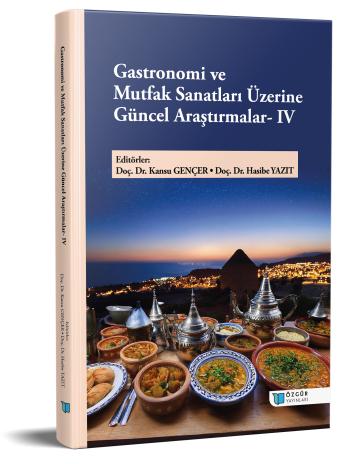
The Intersection of Well-Being, Philosophy, and Gastronomy: A Journey Toward Eudaimonia
Chapter from the book:
Gençer,
K.
&
Yazıt,
H.
(eds.)
2025.
Current Research on Gastronomy and Culinary Arts IV.
Synopsis
According to Aristotle, eudaimonia refers to the state in which individuals realize their potential, lead a virtuous life, and attain physical, mental, and spiritual well-being. This concept encompasses not only individual happiness but also collective and societal well-being. In this context, it is possible to draw a connection between eudaimonia and gastronomy. Gastronomy is not limited to the cultural, scientific, artistic, and aesthetic aspects of food and beverages; it also promotes balanced and healthy eating, thereby enhancing individuals’ quality of life. Moreover, culinary culture strengthens social bonds and contributes to the search for meaning in life.
The balance between hedonism and eudaimonia gives depth to gastronomic experiences. Beyond momentary pleasures, approaches that support sustainable and ethical nutrition enable individuals to lead better lives. Movements such as mindfulness and slow food support this process by encouraging conscious eating and the consumption of local, healthy foods.
Concepts such as eudaimonia, hedonism, gastronomy, healthy living, mindfulness, and slow food collectively lay the foundation for a meaningful and sustainable life by enabling individuals to experience both instant pleasure and long-term well-being through food. This chapter aims to explain the role of food and gastronomy in achieving mental, physical, and social well-being—eudaimonia—and to emphasize that food culture, through notions such as hedonism, healthy nutrition, mindfulness, and the slow food movement, is not merely a means of nourishment but also a practice that generates meaning and happiness in life.

